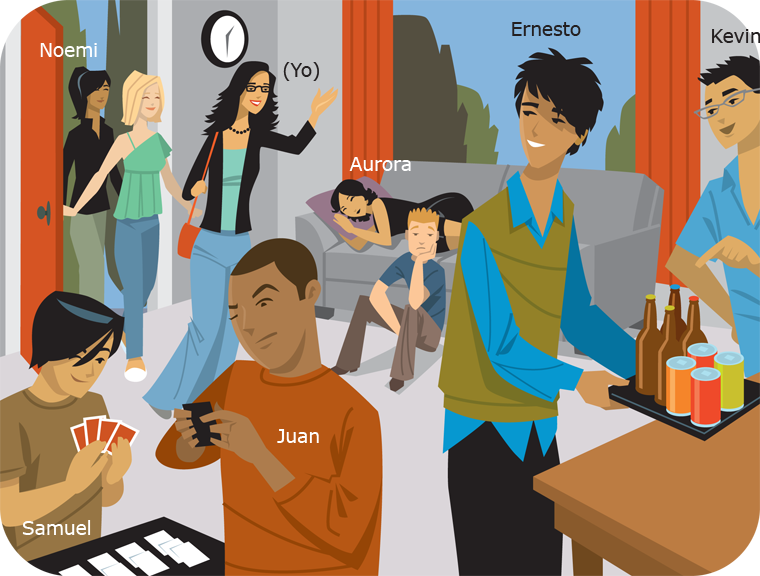Using inversion at least twice, ask a classmate questions to find out:
1. where he/she works
____________________________________________________________________
2. with whom he/she works
____________________________________________________________________
3. when he/she is in class
____________________________________________________________________
4. where he/she studies
____________________________________________________________________
5. what he/she likes to do after class
___________________________________________________________________
What will be an ideal response?
1. Où travailles-tu? / Où est-ce que tu travailles?
2. Avec qui travailles-tu? / Avec qui est-ce que tu travailles?
3. Quand es-tu en cours? / Quand est-ce que tu es en cours?
4. Où étudies-tu? / Où est-ce que tu étudies?
5. Qu’aimes-tu faire après les cours? / Qu’est-ce que tu aimes faire après les cours?
You might also like to view...
Ascolta il breve dialogo tra Marco e Laura e rispondi alle seguenti domande.
Marco e Laura, due giornalisti della Repubblica, si incontrano in redazione. Marco: Sono felicissimo! Mi hanno chiesto di scrivere sulla crisi politica in Italia e credo di aver fatto un articolo eccezionale. Laura: Beato te! Io qui non mi trovo per niente bene. In tre mesi sono riuscita a scrivere solo due articoli. Quando lavoravo al Corriere della Sera scrivevo almeno tre articoli alla settimana. Marco: Devi avere pazienza! Laura: Pazienza, pazienza! Due articoli di sport! Capisci! Io odio il calcio e loro mi mandano a guardare le partite della Juventus. Forse vogliono che mi licenzi. Marco: Lasciami parlare con Elio. Ti ricordi, lo abbiamo conosciuto l’anno scorso a teatro. Lui è amico del redattore capo e ti troverà una buona storia su cui scrivere. Laura: Grazie, Marco. Sei un vero amico. Cosa fa Laura alla Repubblica? ____________________________________________________________________________________
In addition to hand-shaking, a ______ is another customary way of greeting people in the French-speaking world.
a. hug b. high five c. kiss
Mark the following sentences as either (m) for misplaced modifier or (d) for dangling modifier.
1. _____ After moving the furniture, the carpets were filthy. 2. _____ Hiking up the trail, the path became more difficult. 3. _____ To win this contest, a strict schedule must be followed. 4. _____ The wineglasses are on the table made from expensive crystal. 5. _____ The student asked the teacher for help, who was having problems with the question.
Complete the sentences with the correct form of the most logical verb from the list. Use each verb only once.

dormir pedir perder servir
jugar pensar sentarse volver
Ernesto ___________________las bebidas.